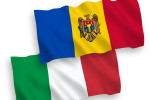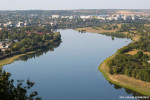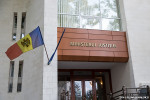
The Gagauz Education Directorate has opposed the Moldovan Ministry of Education’s proposal to introduce a common profile in high schools alongside the humanities and sciences profiles, IPN reports. One of the reasons is the reduction in the number of hours allocated to teaching Russian.
In their statement, the officials from Gagauzia note that with the introduction of the common profile, “the workload on high school students” might increase, and the quality of learning may decrease.
They also clarify that they are “concerned” about the reduction in the number of hours dedicated to studying the Russian language. Gagauz specialists explain that if Russian instruction is reduced, students’ overall academic level will drop, since not all of them study their native language at school.
Since the establishment of the autonomy, no school with exclusively Gagauz-language instruction has been opened in Gagauzia. In 2010, UNESCO included the Gagauz language on the list of languages that are on the verge of extinction.
Meanwhile, Gagauz and Romanian can hardly compete with Russian, even though all three languages are officially recognized in the autonomy. Official documentation in the region and sessions of the local parliament (the People’s Assembly of Gagauzia) are also mostly conducted in Russian.
In April 2024, the People’s Assembly of Gagauzia adopted a resolution calling on Moldovan authorities to grant Russian the status of a language for interethnic communication.
At the end of February this year, President Maia Sandu stated that Chișinău and Gagauzia need to join efforts to preserve the Gagauz language and to broaden the study of the Romanian language in the region.
Data from the “Targeted Program for the Development of Education in the Gagauz Autonomous Territorial Unit for 2021–2030” show that 74% of Gagauz schoolchildren speak Russian at home, whereas only 20% speak their native Gagauz language.












